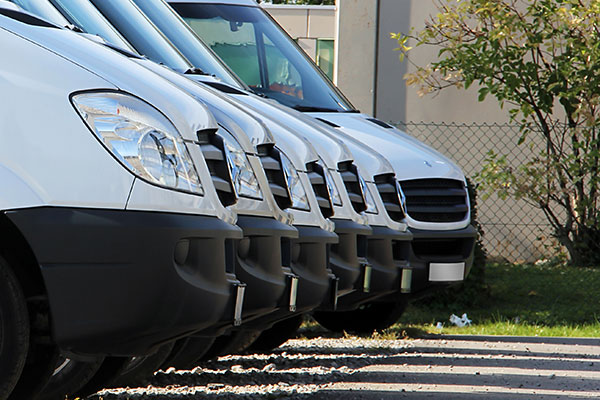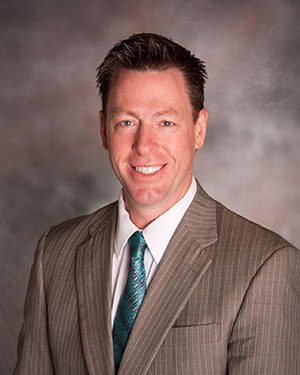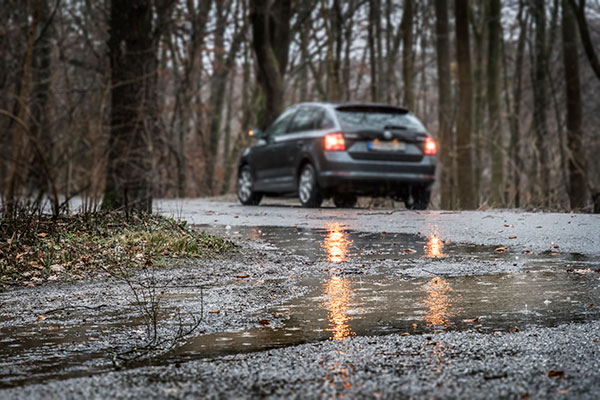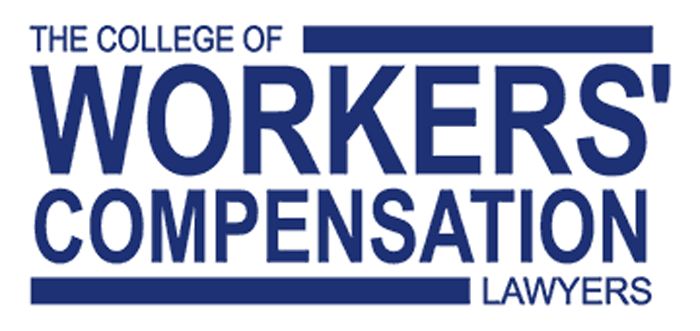Driving is unquestionably the most dangerous activity most of us engage in on a daily basis. Each year, approximately 1.35 million people around the world lose their lives in fatal car accidents, and up to 50 million people suffer non-fatal injuries—many of them serious and resulting in long-term disabilities—in motor vehicle accidents globally.
For many Americans, driving commercial trucks, cars and vans is a regular and essential part of their job. These hardworking men and women are at higher risk of sustaining a serious injury or being killed in an auto accident.
Work-related auto accidents aren’t just a concern for truck drivers, bus operators, delivery drivers and taxi drivers. Motor vehicle crashes are the 1st or 2nd leading cause of death in every major industry group, according to the Centers for Disease Control and Prevention (CDC). Over half (55 percent) of workers who died in 2017 were not employed in motor vehicle operator jobs. Industries with the highest vehicle crash rates include transportation and warehousing, construction, wholesale and retail trade as well as agriculture and forestry.
As with all workplace injuries and accidents, crashes and collisions that happen while an employee is “on the clock” are typically covered by workers’ compensation. However, these cases are often more complicated, in part because they usually happen outside of the workplace and insurers may be more inclined to challenge or deny a workers’ compensation car accident claim.
If you or a loved one were involved in an auto accident while working and were injured or killed, it’s important that you fully understand your rights under Indiana’s workers’ compensation law. At Finderson Law, our Fort Wayne work injury lawyers have represented injured workers and families for over 25 years. We can help you understand your rights and efficiently navigate the workers’ compensation claims (or appeals) process.
You’re not alone.
“I’ve been doing workers’ comp cases for over 21 years. Our firm knows the law, knows the cases, and knows the process inside and out. You’re unlikely to have a situation we haven’t seen before. And as with any other situation involving insurance companies, you KNOW that the other side is going to have lawyers looking at your case.
Call us today. We don’t charge you for the initial consultation, we defer the small flat fee to the end of the case and earn no additional fee unless we make a recovery for you. So, you really don’t have much to lose. What you could gain, however, is peace of mind in knowing that your workers’ comp claim is being handled by a professional, one who is 100% dedicated to fairness to YOU.
And that’s us.”
More on Indiana Workers’ Comp System and How We Can Help

Common Causes of Work-Related Auto Accidents
A vast majority of fatal accidents involve commercial trucks (semis, tractor-trailers, tanker trucks, etc.), followed by pickup trucks and delivery vans/trucks. However, smaller cars, sedans and SUVs commonly used for work-related tasks and errands can also be involved in a serious crash. These auto accidents may be the fault of the employee, the company, another driver or even a government entity.
Some of the most commonly reported causes of work-related crashes that give rise to workers’ compensation claims include:
- Drowsy driving. Roughly half of adult drivers in the U.S. admit to consistently getting behind the wheel while feeling drowsy. One in 5 drivers admit to having fallen asleep behind the wheel at some point in the past year, and more than 40 percent admitted this has happened at least once in their driving careers.
- Distracted driving. An estimated 6 percent of all motor vehicle crashes in the U.S. involved a distracted driver. In 2017, 3,166 people died in crashes involving a distracted driver.
- Reckless and aggressive driving. Aggressive driving played a role in 56 percent of fatal crashes from 2003 through 2007, with excessive speed being the number one factor. When drivers feel pressured by their employer to make deliveries or complete other work tasks faster, they may be more inclined to drive aggressively.
- Impaired (drunk/drugged) driving. Every day, 29 people in the United States die in motor vehicle crashes that involve an alcohol-impaired driver—one death every 50 minutes.
- Bad weather conditions. Each year, approximately 1.3 million accidents occur due to bad weather conditions—often due to wet pavement, rain, snow/sleet, icy roads and fog. Over a fifth (21 percent) of all crashes were weather-related from 2007-2016.
- Poor road conditions. Road problems like potholes and iced-over stretches of highway cause more than 42,000 deaths a year.
When is a Car Accident “Work-Related”?
In order for an injured employee to be covered by workers’ compensation in the event of a car accident, the worker must have been doing a “work-related” task at the time of their injury—or driving in the course and scope of their employment. Since work-related crashes often happen away from a person’s place of employment, it’s even more important to understand exactly what “work-related” means, and what tasks are and are not covered.
In Indiana, the following activities are generally covered by workers’ compensation:
- Running an errand for your boss or employer
- Making deliveries for your company
- Transporting a coworker or another employee for business purposes
- Driving for a living with no fixed office (i.e. truck driver, taxi driver, etc.)
- Traveling to a work-sponsored event
- Driving from one job site to another
In most cases, you aren’t covered by workers’ compensation if you were involved in a car crash on the way to or from your job, or while driving during your lunch break, unless your employer pays for your commute. There are rare exceptions to this rule, however, such as if your boss asked you to stop and pick up office supplies and you got in a wreck.
Employer and Employee Liability for a Car Accident
One question we commonly get is:
Who is responsible for my work-related car accident?
If you were injured while on the clock, then ultimately your compensation won’t be impacted by whose fault the crash was because you should be covered under your employer’s workers’ compensation plan. Workers’ comp is a “no-fault” system in Indiana, meaning you are entitled to benefits regardless of who or what caused your work-related injuries—even if the accident was your fault. Liability isn’t a factor when it comes to workers’ compensation benefits for the injured worker.
There are only a couple of scenarios where the issue of liability may come into play following a work-related accident.
Third-party injury lawsuit against the other driver
If the other driver was at fault for the crash and you were seriously injured while driving for your job, you should be eligible for workers’ compensation benefits to cover your medical expenses and lost wages. However, workers’ comp does NOT provide for non-economic damages like pain and suffering, emotional distress or punitive damages.
Should you wish to pursue additional damages beyond what’s covered by workers’ compensation, then you’ll need to file a personal injury lawsuit against the other driver—in which case, you’ll need to establish negligence and prove fault.
Respondeat superior and vicarious liability
Another reason why liability might be important in a work-related crash is if the employee caused an accident while driving a company vehicle and the other individual/s involved in the crash wish to file a lawsuit against the driver and their company for their damages.
Under the legal doctrine of Respondeat Superior, Indiana employers are generally held vicariously liable for their employees’ negligent actions. In order for an employer to be held liable, the employee who was responsible for the crash must have been acting “within the course and scope of employment.” If the at-fault driver was inebriated or not doing a work-related task at the time of the injury, their employer might avoid liability and the driver would be personally liable.
This doctrine is beneficial for the accident victim as it allows them to pursue compensation from the driver’s employer which has more assets, and it protects the worker from being personally sued.
What to Do After a Motor Vehicle Crash at Work
If you’re involved in a car or truck accident while on the job, many of the initial steps you’ll need to take are similar to what you’d do if you crashed while driving your personal vehicle. However, to initiate the workers’ compensation process and file a claim, there are a few additional steps you’ll need to take.
- Seek medical attention. If you think you might be hurt, are in shock or you’re clearly injured, call 911 and wait for emergency medical personnel to arrive. Avoid moving and obey first responders. You may be taken to the emergency room if you require further treatment or testing.
- Notify your employer. You should let your boss or employer know that you’ve been in an accident as soon as possible. Doing so establishes a record of the incident and gets the process started for filing a workers’ compensation claim. According to Indiana law, you must give notice to your employer about your injury or illness within 30 days or your claim may be denied.
- Attend all medical appointments. Whether you received emergency treatment or not, your employer should provide you with a list of company-approved doctors. Choose one of these approved doctors and schedule a medical evaluation as soon as possible. Be sure to attend all scheduled appointments and follow the doctor’s orders.
- File a workers’ compensation car accident at work claim. If the doctor determines that you were injured in the vehicle wreck, file a workers’ compensation claim with your employer by filling out the necessary paperwork on time.
- Document your injury. Keep all records of your injury and related treatment, including medical bills, doctors’ notes, damaged property value assessment, insurance communications, etc. Also, keep track of the miles you travel to and from doctor appointments. We recommend maintaining a journal about how the injury is impacting your everyday life. These records will serve as important reference points and evidence for your attorney, whose job is to calculate the value of your claim.
- Consult a workers’ comp lawyer near you. If at any time during this process you have questions about your legal rights, obligations and the value of your claim, speak with an experienced work injury attorney in your area. Here at Finderson Law, your initial consultation is free and there’s no obligation to take the next step if you’re not ready. Simply contact us for answers and more information. There’s nothing to lose, and potentially much to gain.
Why Talk With Our Fort Wayne Work Injury Lawyers?
Were you injured in a work-related auto accident? At Finderson Law, you can count on receiving the highest quality representation and personal legal service for your workers’ compensation claim or appeal.
Known for being compassionate and tireless advocates, our attorneys can guide you through the entire workers’ compensation claim process, from investigating the crash scene and choosing a doctor to filing a claim and appealing a denial. We are diligent problem solvers who partner with our clients to help them meet their objectives and favorably resolve the most complex legal matters.
We’ve helped hundreds of clients. Our history of providing superior legal services —and delivering exceptional results — has earned us a 5-star rating on Facebook and Google. From our law firm office in Fort Wayne, we are proud to represent injured workers throughout Allen County and the state of Indiana.
REVIEWS FROM OUR CLIENTS
Great to work with. Went above and beyond to help us. Very professional and personable. They cared about me and getting done what was needed. Would highly recommend this firm. - D.P.
Always on top of the process and keeps in contact. Communication to me is key regardless if they are making progress or not and they were always answering the phone or returning calls promptly and answering any questions along the way. Top notch and while I hope to never use them again, I highly recommend them. Excellent and phenomenal! - H.H.
Roger went above and beyond for me and got me the results I needed. I'm extremely satisfied with how things turned out! Hopefully, I will not have to visit the office again; but, if I do need a lawyer, I know where to go! - T.
Serving Fort Wayne & Communities Across Indiana
If you or a loved one were hurt in a work-related car or truck accident, don’t hesitate to contact our law firm to find out more about your legal options and learn how skilled representation can make all the difference in your case.
From our law office in Fort Wayne, we are proud to represent clients throughout Allen County and the state of Indiana.






 744 E Till Rd, Suite 102
744 E Till Rd, Suite 102
